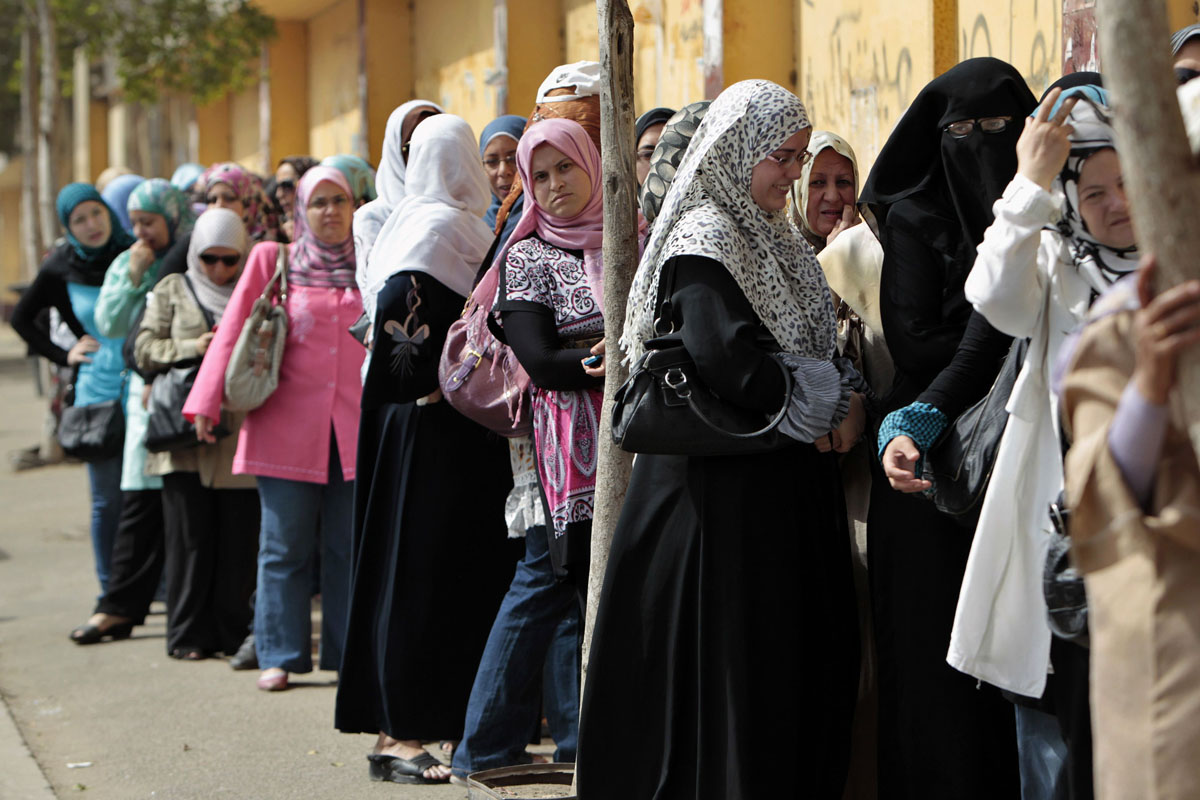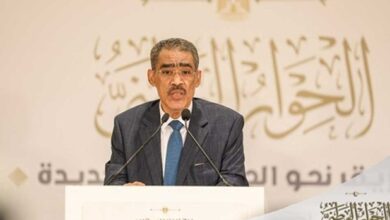Hours before nearly 6,000 journalists head to the polls, the streets of downtown Cairo — where the headquarters of most private and state newspapers are situated — are filled with posters bearing the faces of candidates.
Friday’s Journalists Syndicate elections will determine the new head of a syndicate that has arguably the strongest impact on public opinion, as well as six of its 12 board members.
The elections should have taken place next October 2013, according to a law that states that the syndicate elections must be held every two years. But strident discord between the Brotherhood-backed CEO of state-run Al-Ahram newspaper, Mamdouh al-Wali, and the rest of the leftist-leaning board have rendered the body virtually dysfunctional. Syndicate members demanded early elections.
Observers say that after failing to control the syndicate through a Brotherhood-friendly chairman, the Brothers are likely to back a state-affiliated candidate who has a demonstrated history of aligning himself with the regime.
The frontrunners for post are Abdel Mohsen Salama, managing editor of Al-Ahram newspaper, and Diaa Rashwan, the head of Al-Ahram Center for Political and Strategic studies.
“Wali won the last elections because he belongs to Al-Ahram, but now with the two candidates closest to the seat being sons of the institution, the Brotherhood is more likely to prefer Salama — he is one of the journalists who belong to the state by nature,” claims journalist Khaled Al-Balshy, who is running for one of the board seats.
“Today, the Brotherhood is the state,” he added.
Historically, state-affiliated journalists possess the heaviest voting power in the Journalists Syndicate, and the body’s chairperson was always elected from this block. Liberal journalists, mostly with leftist and Nasserist leanings, vied with them for power. The Islamist block was the least influential.
During the 2011 syndicate elections, however, a new power dynamic emerged: Islamists squared off against non-Islamists, with a Brother emerging victorious. But in the absence of a Muslim Brotherhood candidate this time around, the competition is expected to return to its pre-revolution pattern: A struggle between state-affiliated members and those from the leftist block.
While it’s up for grabs as to who will win the crucial vote from the state journalists’ block, observers say the Brotherhood will back Salama, while liberal and young voices in the syndicate will be more inclined to vote for the left-leaning Rashwan.
Salah Eissa, member of the Supreme Council for Journalism, says that, lacking a strong electoral base in the syndicate, the Brotherhood will select to back the candidate closest to its interest, rather than run its own candidate.
“If they don’t form an alliance with one of the two main blocks in the syndicate, the Brotherhood will lose,” asserts Eissa.
The larger political rift between the Brotherhood and other Islamist groups that unfolded recently has further weakened the group’s influence within the syndicate; they no longer hold control over the votes of the Islamist block.
Salama held the post of the deputy chairman of the syndicate from 2007 until the post-revolution dismantling of the board in 2011. Rashwan, while also coming from the state-governed Al-Ahram family, has a reputation of maintaining a higher degree of independence, and has been a staunch critic of the Brotherhood. Rashwan lost the elections for head of the syndicate in 2009 to regime loyalist Makram Mohamed Ahmed.
Eissa says that after openly backing a candidate for the first time in 2011, the Brotherhood found that the move backfired.
“Mamdouh al-Wali ran the syndicate with wild partisan bias, which hurt the Brotherhood. They realized that if they ran another candidate explicitly associated with them, they will lose,” claims Eissa.
While the head of the syndicate had always been affiliated with the formerly ruling National Democratic Party, previous chairs were more careful not to aggravate members of different associations, Eissa explains.
Wali’s Brotherhood-oriented decisions were met with strong resistance from board members, and led to constant rifts within the body.
At its most extreme, the quarrels escalated to physical confrontations between Wali and board member Hesham Younis last August, when Wali insisted, contrary to the board’s will, on filing a complaint to the Supreme Council for Journalism against privately owned Al-Dostour newspaper, which has an editorial line sharply opposing the Brotherhood.
Another public fallout occurred when Wali showed up to the Constituent Assembly’s vote on the 2012 Constitution, despite the syndicate’s decision to withdraw from the assembly. A vote of no confidence against him followed.
Regardless of the results, the profiles of both frontrunners promise a syndicate board that should be more coherent and effective than the last one, Eissa claims.
“Both candidates have enough intelligence and experience to avoid Wali’s mistake, which led to the fragmentation of the board. They understand the importance of the syndicate, and want to have a strong and successful institution. At the end of the day, the divisions within the board hurt the head of the syndicate more than anyone else,” he says.




